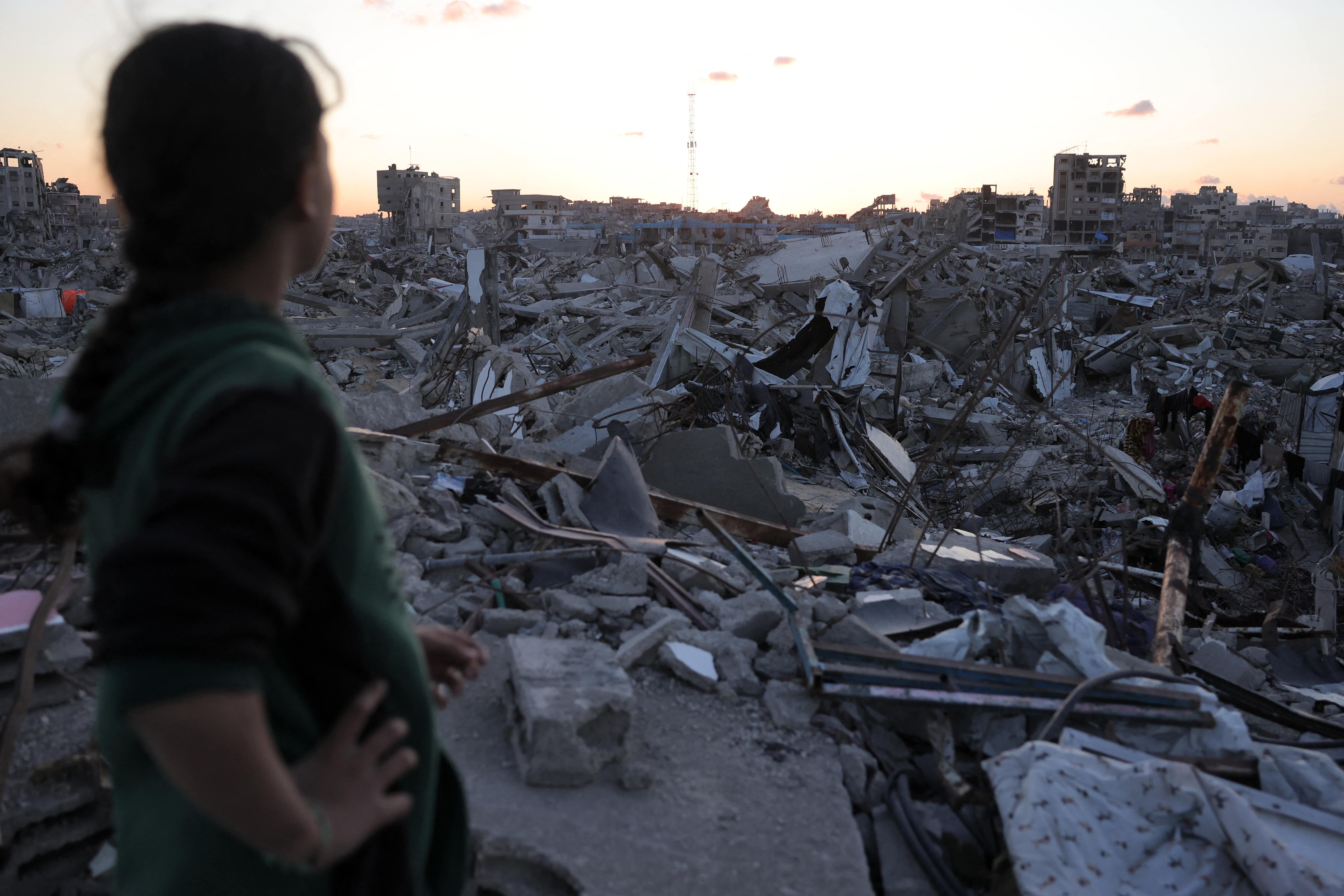UN: Situation in Gaza worst it has been since start of war

The UN relief coordination office (OCHA) has said that the humanitarian situation in Gaza is the worst it has been since the start of the war, amid Israel's halting of essential supplies into the besieged enclave.
According to OCHA, it has been more than a month since Israeli authorities allowed the entry of aid into the territory, the longest blockade the Gaza Strip has experienced.
"The humanitarian situation in Gaza is now likely the worst it has been in the 18 months since the outbreak of hostilities," the UN agency said in an update on Monday.
It added that there has been "a surge in attacks causing mass civilian casualties" including Sunday's attack by Israel on the Al-Ahli Baptist Hospital in Gaza City.
Over the weekend, Israel struck the last functioning hospital in Gaza, further worsening an already critical lack of medical facilities in the enclave.
New MEE newsletter: Jerusalem Dispatch
Sign up to get the latest insights and analysis on Israel-Palestine, alongside Turkey Unpacked and other MEE newsletters
Missiles hit the hospital's main reception building, damaging or destroying essential departments such as the emergency care ward, laboratory and pharmacy, the Wafa news agency reported.
Israel has repeatedly struck hospitals and targeted health centres across the Gaza Strip since the beginning of its assault on the enclave in October 2023.
It usually does so claiming that there are bases used by Palestinian fighters under the facilities but in more than a year and half of conflict, Israeli officials have never produced credible evidence of there being a military presence in the facilities.
The Palestinian health ministry warned earlier this week that hospitals and medical centres in Gaza were facing “dangerous and unprecedented” shortages of essential medicines as a result of Israel's blockade.
The ministry said that 37 percent of essential drugs and 59 percent of medical supplies were completely out of stock, along with 54 percent of medications used to treat cancer and blood diseases.
Emergency, surgical and intensive care units had been operating with severely depleted life-saving treatments, while around 80,000 diabetic patients and 110,000 with high blood pressure were no longer receiving care.
Surgery without anaesthetic is also common across the area.
Following the bombing of the Baptist Hospital, Director-General of the World Health Organisation (WHO) Tedros Adhanom Ghebreyesus stressed that hospitals are protected under international humanitarian law.
"Attacks on health care must stop... Once again we repeat: patients, health workers and hospitals must be protected. The aid blockade must be lifted. Ceasefire."
Israel has also targeted aid workers and food distribution centres in Gaza, further exacerbating Palestinian suffering.
On Sunday, a UN warehouse in Gaza City and a food distribution point in Khan Younis were attacked. Meanwhile, 25 WHO bakeries across the Gaza Strip were shut down as a result of flour and cooking gas shortages.
"We are witnessing acts of war in Gaza that show an utter disregard for human life," the WHO said in a statement.
According to the IPC Acute Food Insecurity classification, between November 2024 and April 2025, more than 90 percent of Gaza's population are classified under IPC Phase 3 (Crisis) or above.
Nearly half of the population is facing emergency levels of food insecurity (phase 4), while 16 percent faces catastrophic insecurity (phase 5).
Displacement and killings
OCHA has also reported that displacement orders issued by Israeli authorities have trapped civilians in "increasingly fragmented and unsafe enclaves, where access to essentials for survival is dwindling by the day".
Around 70 percent of Gaza is under expulsion orders or in “no go” zones.
According to Israeli soldiers interviewed for a report by the NGO Breaking the Silence, titled "The Perimeter", the army created a perimeter, between 800 and 1,500 metres in breadth and 1.5km inside the Gaza Strip, where "large swathes of the land were turned into massive kill zones".
In December, a Haaretz investigation revealed that hundreds of Palestinians, including children, had been indiscriminately shot dead by Israeli soldiers along the corridor.
It had been designated as a “kill zone” by the Division 252 commander, according to a senior officer, allowing soldiers to shoot “anyone who enters".
Since Israel's resumption of the war almost one month ago, there have been 1,630 recorded killings in Gaza, a majority of them children and women.
More than 51,000 have been killed since 7 October 2023, with more than 116,343 wounded.
In December 2023, South Africa accused Israel of the crime of genocide before the International Court of Justice (ICJ) for its conduct during the war on Gaza.
middleeasteye.net